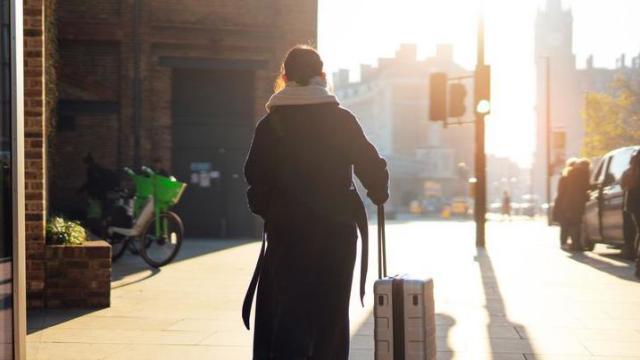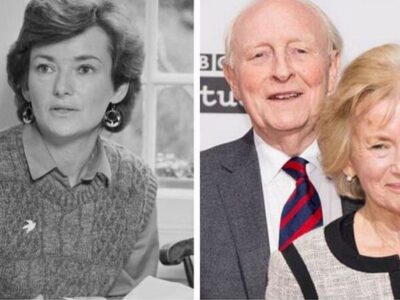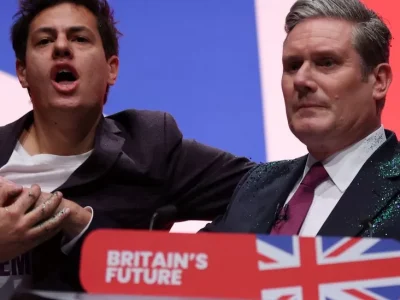The number of visas available to migrants would be reduced each year under a new Conservative government, the prime minister has promised.
For the first time, MPs would get a vote on annual government proposals aimed at regularly reducing numbers, which would be based on recommendations from the expert Migration Advisory Committee (MAC).
Although no figures were suggested for a possible cap, Rishi Sunak said his was the only party willing to take “bold action to reduce immigration” if elected on 4 July.
Labour’s Yvette Cooper, shadow home secretary, pointed to net migration trebling and accused the Tories of “rehashing failed announcements”.
The announcement came as Nigel Farage announced he was returning to lead the Reform Party, with its focus on reducing immigration, which has heaped further pressure on Mr Sunak.
Some Conservatives have been unhappy at immigration levels, with control over the UK’s borders and reducing immigration figures seen as a key battleground between Labour and the Tories this election.
With a head-to-head debate due on Tuesday where Mr Sunak will face off with Labour leader Sir Keir Starmer, the PM is trying to draw a dividing line, with this new policy forming a central plank of his manifesto.
Mr Sunak said putting the decision in the hands of MPs would give voters confidence their views would be respected and reflected.
“The plan is working but migration levels are still too high, so we are going further,” he said.
The PM claimed Labour would “make the UK a global magnet for illegal immigrants”, suggesting they had “no plan to reduce net migration”.
“The Conservatives are the only party that is willing take the bold action needed to cut immigration figures,” he continued.
The cap would apply to worker and family visas and would exempt temporary work routes, such as Seasonal Agricultural Workers.
The MAC’s remit would prioritise the economy, with explicit orders to look at the economic costs of migration, including the impact on public services, wages and productivity.
However, this would be the fourth attempt at such a cap, with successive Tory governments attempting to limit visas under Theresa May, David Cameron and Rishi Sunak in last year’s Illegal Migration Act.
Last year, Mr Sunak came under fire from two of his own Cabinet ministers, who called for tougher measures to curb legal migration, including calls for an annual cap on net migration, which had reached a record high.
Former home secretary Suella Braverman said the immigration figures were a “slap in the face” and that her calls for an annual cap on net migration and a cap on health and social work visas had been ignored.
Robert Jenrick quit as immigration minister, saying the PM’s plans did not go far enough, having previously set out a series of measures including caps on visas.
Mr Sunak has admitted his flagship scheme to send failed asylum seekers to Rwanda will not be implemented before the election.
Shadow home secretary Yvette Cooper said: “This is a meaningless announcement from a Tory party which has trebled net migration since the last election despite promising to bring it down.
“All they are doing now is rehashing failed announcements from David Cameron and Theresa May, while doing nothing to tackle the skills shortages and their failures in the economy and immigration system which have pushed net migration up.”
Labour’s Ms Cooper asked why anyone should take the Tories’ latest promise seriously after they had already “repeatedly broken” previous ones.
She added Labour’s plan to bring net migration down would link the immigration system with new mandatory training and workforce plans for British workers, and stop rogue employers hiring from abroad.
Immigration levels last year were about three times higher than in 2019, when the Tories won the last election with a promise to slash migrant numbers, although they were lower than in 2022.
More than 300,000 work visas were given in the year ending March 2024, which is more than double the number granted in 2019, according to official statistics.
A new ban on international students and social care workers bringing dependent family members and a hike in the minimum salary for skilled worker visas were introduced this year.
While the tightened regulations led to a huge decline in the number of health and social care visa applications in May, according to interior ministry figures, care providers have warned that the sector is struggling to fill tens of thousands of vacancies.
![]()






